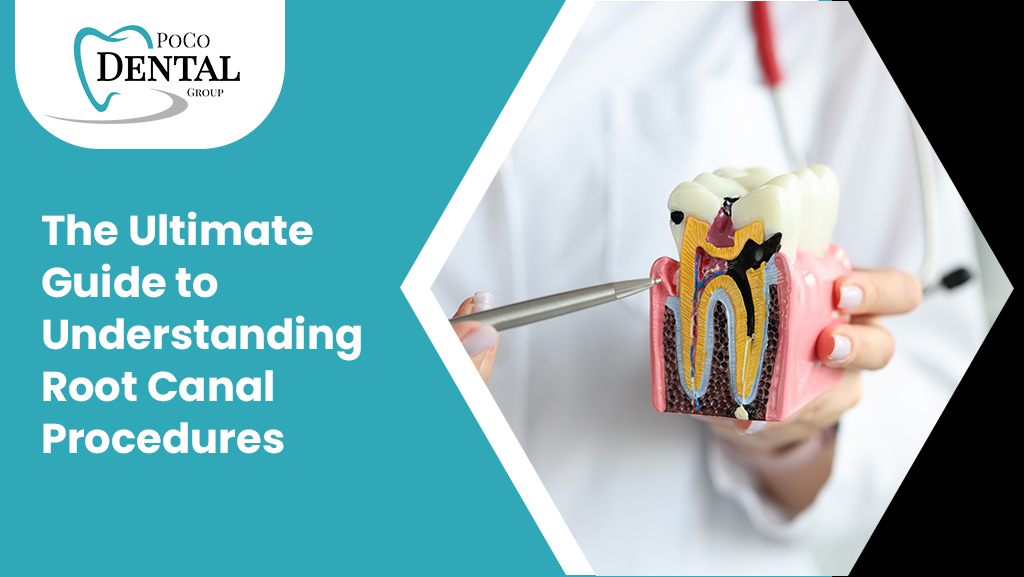Dental health plays a crucial role in our overall well-being, and when it comes to addressing severe tooth decay or infections, a root canal procedure often becomes necessary. Despite its common association with pain and discomfort, understanding the root canal process can help alleviate anxiety and misconceptions. In this comprehensive guide, we’ll explore the ins and outs of root canal procedures, from the reasons they are needed to what to expect during and after the treatment.
What is a Root Canal?
A root canal is a dental procedure designed to treat and save a tooth that is severely decayed or infected. The term “root canal” refers to the natural cavity within the tooth’s center, which contains the pulp chamber, nerves, and blood vessels. When this area becomes infected or damaged, it can lead to significant pain and complications if left untreated.
Symptoms that Suggest You Need Root Canal Treatment
- Severe Toothache: Persistent or intense pain, especially when chewing or applying pressure to the tooth, could indicate damage or infection in the pulp (the innermost part of the tooth).
- Sensitivity to Hot or Cold: Increased sensitivity to hot or cold temperatures that lingers after the temperature stimulus is removed may suggest issues with the nerve inside the tooth.
- Swollen Gums: Swelling around a specific tooth or in the adjacent gums may be a sign of infection. You might sometimes notice a pimple-like bump (dental abscess) on the gums, known as a dental fistula.
- Discoloration of the Tooth: A tooth that has become discolored (usually darkening) may indicate damage to the pulp or blood vessels within the tooth.
- Painful Pimple on the Gums: A painful, pimple-like bump on the gums, called a dental abscess or gum boil, could be a sign of infection in the tooth’s pulp.
The Root Canal Procedure Explained:
- Diagnosis and X-rays: The first step involves thoroughly examining the tooth and X-rays to determine the extent of the damage and the shape of the root canals.
- Anesthesia: Before the procedure begins, the dentist administers local anesthesia to ensure the patient is comfortable and pain-free during the treatment.
- Isolation of the Tooth: During the procedure, a rubber dam is placed around the tooth to keep it dry and free of saliva.
- Access Opening: A small opening is made in the tooth’s crown to access the pulp chamber and root canals.
- Cleaning and Shaping: The infected or damaged pulp is removed, and the root canals are cleaned, shaped, and disinfected to eliminate bacteria and debris.
- Filling the Canals: Once cleaned, the canals are filled with a biocompatible gutta-percha material to seal them and prevent further infection.
- Temporary or Permanent Filling: Depending on the dentist’s recommendation, the access opening is sealed with a temporary or permanent filling.
Post-Root Canal Care:
- Pain Management: It is expected to experience some discomfort after a root canal. Over-the-counter pain medications are often sufficient for pain management.
- Avoiding Chewing on the Treated Tooth: Patients are advised to avoid chewing on the treated tooth until a permanent restoration, such as a crown, is placed.
- Follow-up Appointments: A follow-up appointment is scheduled to monitor the healing process and, if necessary, to place a permanent restoration on the tooth.
Importance of Seeking Timely Treatment:
Delaying or avoiding a root canal when it is needed can have serious consequences, including:
- Spread of Infection: Untreated infections can spread to other body parts, leading to systemic health issues.
- Loss of the Tooth: Advanced decay or infection may necessitate tooth extraction if a root canal is not performed promptly.
- Chronic Pain: Persistent tooth pain can significantly impact daily life and overall well-being.
Conclusion:
The process, from diagnosis to post-treatment care, is designed to save natural teeth and restore oral health. If you suspect you need a root canal or are experiencing dental pain, consult with your dentist promptly to explore the most appropriate treatment options. Remember, a healthy smile contributes not only to your oral well-being but also to your overall quality of life.
At PoCo Dental Group in Port Coquitlam, we pride ourselves on being your trusted destination for exceptional root canal treatments.
Choosing us means selecting a dental clinic that provides top-notch care in a warm and welcoming environment. Our highly skilled team of experienced dentists utilizes the latest advancements in dental technology to ensure precise and effective root canal procedures. We prioritize your comfort and well-being, employing gentle techniques to alleviate any concerns you may have.
PoCo Dental Group is to deliver personalized, patient-centred care, taking the time to thoroughly explain procedures and address any questions or anxieties you may have. With our commitment to excellence, state-of-the-art facilities, and a compassionate approach, PoCo Dental Group is the ideal choice for your root canal treatment needs in Port Coquitlam. Your oral health is our priority, and we look forward to providing you with the highest standard of care for a healthier, happier smile.




